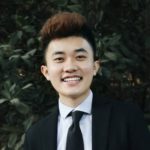Student Editor’s Column
As a Taiwanese Hongkongese American, I was profoundly stunned by the sudden emergence of anti-Asian sentiments perpetuated by the deep-rooted xenophobia of our nation. Amidst the turmoil and uncertainty of the COVID-19 pandemic, I felt afraid for my family, especially my grandparents, whose lives were threatened by the very community they relied on, hindering them from going on their daily stroll at the park or trip to the Chinese supermarket. Additionally, I was disheartened to hear my family tell me to take off my mask if other people were not wearing it so we would not “stick out” or be a target of discrimination. This advice illuminated the double-sided threats we faced as an Asian family trying to survive the virulent strains of both COVID-19 and xenophobia.
During this time in 2020, I felt utterly inundated with the pervasive accounts of racism and murder against Black, Indigenous, People of Color (BIPOC) showcased on all forms of social media and news platforms. Feeling compelled to stand up for these marginalized individuals, I started expanding my awareness about the racism around me. Through listening to advocates like Dr. Sherry C. Wang who navigates difficult conversations about racism, I recognized the importance of racial dialogue. At the same time, I was also taking an active role as a peer educator on my college campus, where I conducted psychoeducational workshops and promoted awareness via social media.
However, after reflecting on my advocacy, I realized my urge to bolster change failed to acknowledge the pace and endurance required to process racial trauma. Gradually, it became more challenging for me to find hope and fight for restoration because of how the perpetual cycles of racism emotionally and mentally depleted me. Fortunately, I learned to gravitate towards the work of advocates and scholars like Dr. Derald Wing Sue on the topic of microaggressions, Dr. Kevin Cokley on the importance of “Cross-Racial/Ethnic Solidarity,” Dr. Thelma Bryant-Davis and Egypt Leithman on “Healing the Wounds of Racial Trauma,” and Dr. Kristina C. Mendez and Zeynep Demir on the crucial perspectives of “Centering Community Healing from a Warrior’s Path Task Force Lens.” These works helped me realize the tremendous opportunity and hope we all share through solidarity in our community. I also received the opportunity to present a research poster about the impacts of racial microaggressions on BIPOC communities at the 2021 APA 45 Research Conference. As a growing clinician and researcher, I felt proud to see the expanding diversity in minority psychologists and their efforts to represent the marginalized voices that are often unseen and silenced. Partaking in the conference reminded me I have the support of other psychologists and community members and that I am not alone in this fight against racism.
Today, I have the opportunity to share my experience of growth as I become more cognizant of the systemic racism and oppression around me. As the student editor this year, I feel hopeful and empowered to join the collective movement towards this cause of bridging the racial divide and uplifting vulnerable populations towards reparation. I am particularly appreciative of the contributions in this edition to enhance our perspectives and conversations about race. Further, I am grateful for the discussions and recent acknowledgments and goals in APA to initiate the healing process. I firmly believe that we are stronger and more resilient together in solidarity.
